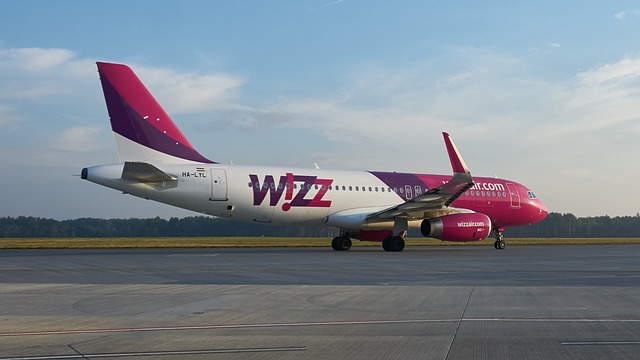take off with confidence a guide to airport careers and aviation training that can move you forward
The aviation industry offers a diverse range of career opportunities beyond just pilots and flight attendants. From air traffic controllers to aircraft maintenance technicians, airport security personnel to aviation managers, the sector provides pathways for individuals with varying educational backgrounds, skills, and interests. Whether you're fascinated by aircraft technology, interested in ensuring passenger safety, or drawn to the operational aspects of running an airport, aviation careers can provide stability, growth potential, and the excitement of being part of a global transportation network that connects people across the world.

Exploring Career Pathways in the Aviation Industry
The aviation industry encompasses numerous career paths suitable for different skill sets and interests. At airports, operational roles include air traffic controllers who coordinate aircraft movements, ground handlers who manage luggage and cargo, and customer service agents who assist passengers. Technical positions range from aircraft mechanics to avionics technicians who maintain sophisticated electronic systems. Administrative roles include airport managers, human resources professionals, and financial analysts who ensure the business side of aviation runs smoothly.
Beyond airports themselves, opportunities extend to airlines, aerospace manufacturers, government regulatory bodies like the Federal Aviation Administration (FAA), and aviation consulting firms. Career progression often involves starting in entry-level positions and advancing through experience and additional certifications, with many roles offering clear advancement pathways as you gain expertise and specialized knowledge.
An Overview of Airport Roles and Training Requirements
Airport operations require a diverse workforce with specialized training. Air traffic controllers, who manage the safe movement of aircraft, typically need an associate’s or bachelor’s degree, completion of the FAA Academy program, and must pass rigorous psychological and medical evaluations. Their training includes extensive simulation work and on-the-job instruction that can take 2-4 years to complete.
Aircraft maintenance technicians must obtain Airframe and Powerplant (A&P) certification through FAA-approved aviation maintenance technician schools, which typically takes 18-24 months. Airport security personnel receive specialized training through the Transportation Security Administration (TSA) or private security contractors, focusing on screening procedures, threat detection, and emergency response protocols.
Customer-facing roles such as airline ticket agents and gate agents often require a high school diploma with additional company-provided training in reservation systems, customer service protocols, and airline-specific procedures. Higher-level management positions typically require bachelor’s degrees in aviation management, business administration, or related fields, plus several years of industry experience.
Aviation Training Opportunities and Educational Pathways
Aviation training comes in various formats to accommodate different career goals. Technical colleges and specialized aviation schools offer programs for aircraft maintenance, avionics, and airport operations. These programs typically combine classroom instruction with hands-on practical training and range from certificate programs of several months to associate degrees spanning two years.
For those interested in piloting careers, flight schools provide training from private pilot certification through commercial licenses and airline transport pilot ratings. Universities with aviation programs offer bachelor’s degrees in fields like aviation management, aeronautical science, and aerospace engineering, providing both theoretical knowledge and practical experience through partnerships with airports and airlines.
Online learning has also expanded access to aviation education, with many institutions offering distance courses in aviation safety, management, and other non-hands-on aspects of the field. Professional organizations like the American Association of Airport Executives (AAAE) provide continuing education and specialized certifications that help professionals advance their careers and stay current with industry developments.
Education and Skills That Support Aviation Careers
Success in aviation careers requires both technical knowledge and transferable skills. Technical competencies vary by role but may include understanding of aerodynamics, aircraft systems, meteorology, navigation, or specialized software systems. Safety consciousness and attention to detail are paramount across all aviation positions, as small oversights can have significant consequences in this high-stakes industry.
Communication skills are essential, particularly in roles requiring coordination between pilots, ground crew, maintenance teams, and other personnel. Problem-solving abilities and quick decision-making are valued in this dynamic environment where weather changes, mechanical issues, or security concerns can necessitate rapid adjustments to operations.
For management positions, business acumen, leadership capabilities, and understanding of regulatory frameworks become increasingly important. Foreign language skills are advantageous in international airports, while digital literacy is becoming essential as airports and airlines increasingly rely on sophisticated technology systems for everything from baggage handling to passenger processing.
Salary Expectations and Job Outlook in Airport Careers
The aviation industry offers competitive compensation with significant variation based on role, experience, location, and employer size. Air traffic controllers rank among the highest-paid non-management airport professionals, with median annual salaries around $130,000 according to the Bureau of Labor Statistics. Aircraft mechanics and technicians typically earn between $65,000-$85,000 annually, while entry-level customer service positions generally start at $35,000-$45,000.
Management positions in airport operations can range from $70,000 for supervisory roles to over $200,000 for executive directors at major airports. The industry also typically offers good benefits packages, including health insurance, retirement plans, and often travel benefits that allow employees and sometimes their families to fly at reduced rates.
| Position | Entry-Level Salary Range | Mid-Career Salary Range | Advanced Career Salary Range |
|---|---|---|---|
| Air Traffic Controller | $70,000 - $90,000 | $100,000 - $140,000 | $150,000+ |
| Aircraft Maintenance Technician | $45,000 - $55,000 | $65,000 - $85,000 | $90,000+ |
| Airport Operations Manager | $55,000 - $70,000 | $75,000 - $100,000 | $110,000+ |
| TSA Security Officer | $35,000 - $45,000 | $50,000 - $60,000 | $65,000+ |
| Airline Customer Service Agent | $30,000 - $40,000 | $45,000 - $55,000 | $60,000+ |
Prices, rates, or cost estimates mentioned in this article are based on the latest available information but may change over time. Independent research is advised before making financial decisions.
Job outlook varies by role, with the Bureau of Labor Statistics projecting steady growth for many aviation positions through 2030, particularly in aircraft maintenance and airport operations as air travel continues to increase globally. While technological advances may reduce demand in some areas, the need for skilled professionals who can operate, maintain, and manage complex aviation systems remains strong.
Launching Your Aviation Career Journey
Beginning a career in aviation requires strategic planning and understanding of industry entry points. For those without prior experience, entry-level positions in customer service, ground handling, or security can provide valuable exposure to airport operations and opportunities to network within the industry. Many professionals recommend obtaining relevant certifications before applying, as these credentials demonstrate commitment and basic knowledge to potential employers.
Educational institutions with strong aviation programs often maintain industry partnerships that facilitate internships, apprenticeships, and job placement assistance. Professional organizations like the Airport Consultants Council or Women in Aviation International offer networking events, mentorship programs, and job boards specifically for aviation professionals.
The aviation industry values continual learning, so demonstrating your commitment to ongoing professional development through additional certifications, workshops, or advanced degrees can support career advancement. With the right combination of education, skills development, and professional networking, you can build a rewarding career path that allows you to take off with confidence in this dynamic global industry.




